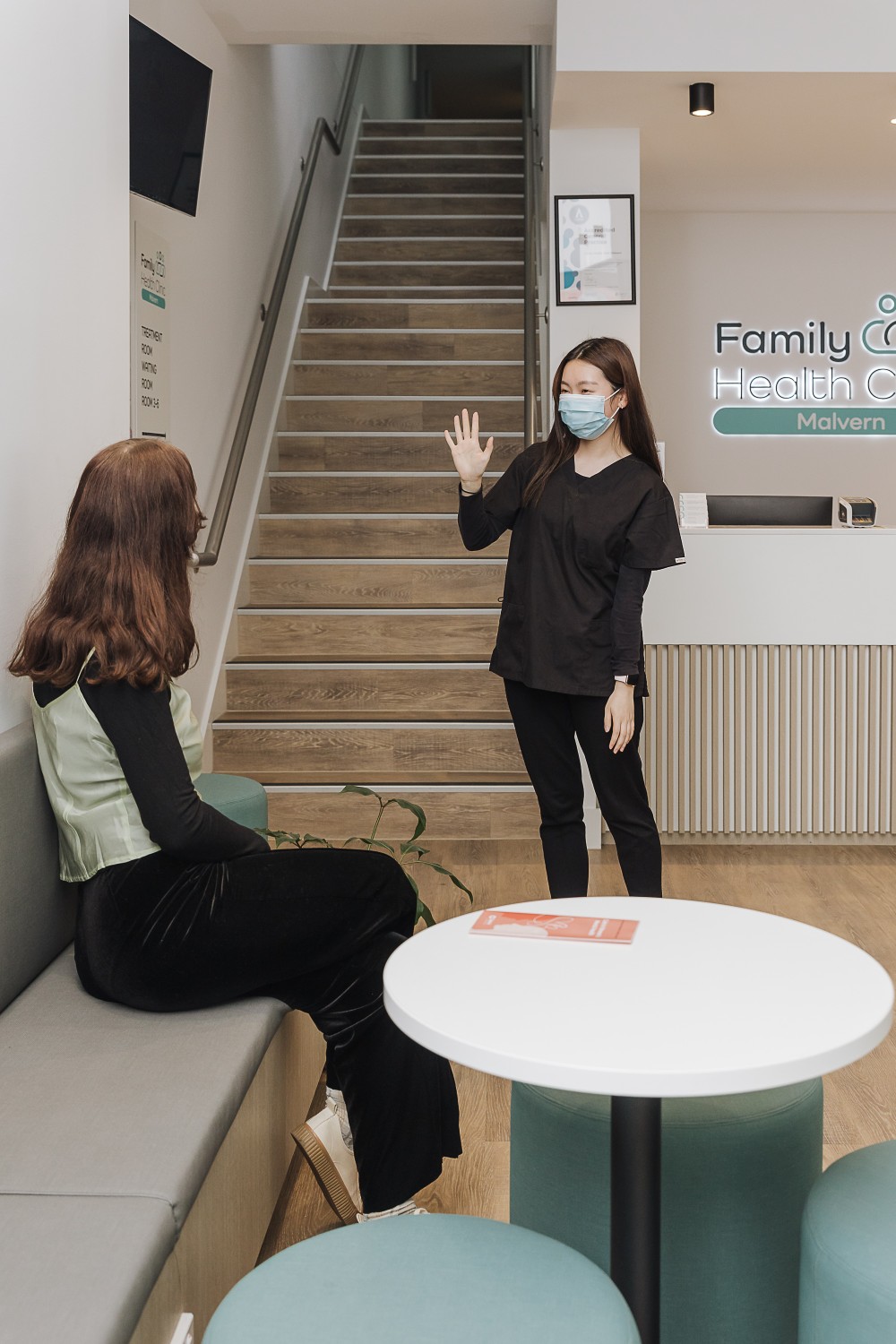Our services...
Travel Advice and Immunisation
Travelling Overseas?
Chat with your doctor for safe travel
Living in Australia means we are remote from other countries. Whether you have travelled before or are planning an adventure to another country for the first time, it is important to advise your doctor about the countries you plan to visit. You may require some travel vaccines to protect your body against diseases that do not exist in Australia. Many parts of the world have specific recommendations for vaccines to ensure you are not at risk of being infected or bringing home devastating diseases. Our clinic can administer travel vaccines.
What to expect...
Make an Appointment
Book an appointment that work for you
Talk to us
Chat to your GP about your health concerns.
Make a plan
We will develop a plan and offer recommendations.
Follow up
Execute plan, track your progress and achieve wellness.
Seek help today. Make an appointment to speak to us.

TRAVEL PLANNING
If you are planning a vacation or long-term adventure outside of Australia, we recommend speaking to one of our GP’s about relevant medical travel advice. Some travel vaccines need to be administered 4-8 weeks prior to travel so it is best to prepare early. See below for more details
TRAVEL ADVICE
Our Practitioners ..
Frequently asked questions...
A few tips that a traveller should prepare before their travel:
1- You need to know, once you decided about your destination(s), contact your doctor for travel advice.
2- You may need to know that a few countries have similar health infrastructure and system like Australia. However, other countries would have different so discuss with your doctor the purpose of your trip and length of your stay. If you are in regular medications, make sure you take with you enough medicines that would cover the length of your temporary stay.
3- Visiting various countries seems exciting especially knowing about new culture, cuisines and traditions. You may need to know that water and food contamination is common in many countries due to various reason. Make sure you know where you purchase your food. Bottled water is recommended than tap water.
4- You may need to know that vaccines are recommended for people travelling to many countries. The main vaccines are against Hepatitis A and Typhoid fever. Vaccine against Tetanus needs to be update if it has not been done over the last 10 years. Also, travellers to South American or African countries are required to show the Yellow Fever vaccine on their arrival to Australian Borders. Vaccines may differ to children like Hep A vaccine dose is different to children. Check with your GP for travel vaccines.
5- You many need to know, booking a travel consultation with your GP is essential. You would be able various aspect of travel advice, infectious diseases prevention and receiving prescriptions for travel medications.
Contact your doctor regarding advice regarding your travel plans including the destination and the places you may visit, the length of your stay.
A general health check may be required, vaccines against certain infections may vary according to your destination.
If you are on regular medications, you may to fill prescriptions to cover the period of your stay.
Your doctor may advise you to take with antiemetics (to stop nausea and vomiting), certain antibiotics. It is also advisable to purchase from over the counter, pain killers like paracetamol and Ibuprofen, bandaid,bandage and hydrolytes.
Vaccines against hepatitis A and Typhoid infections are commonly advised when travelling to most destinations in Asia, Middle East, Africa and South America.
Vaccine against Yellow fever is mandatory when travelling to African countries, certain countries in South America. The recommendations of other vaccines like Rabies and Japanese encephalitis depends on the visiting areas and the activities, which could be risky exposure to acquire these infections
Malaria is spread by mosquitos infected with microscopic malaria parasites. Malaria is caused by 5 possible parasites, but infection with one particular parasite (the Plasmodium falciparum parasite) can be especially dangerous.
People going overseas can avoid getting malaria by protecting against mosquito bites and taking preventive antimalarial medicines.
If you are travelling to an area that has malaria, visit a GP or travel clinic 4-6 weeks before you go for specific advice about avoiding malaria based on your itinerary and medical history.
Depending on the risk of malaria in the areas you are visiting, you may be advised to take medicines to prevent malaria:
· The choice of antimalarial depends on a range of factors including the drug resistance patterns of malaria in the areas you will visit.
· It is important to take antimalarials exactly as advised by your doctor. All antimalarials need to be taken before, during and after you travel. Some need to be started several weeks before you travel. It is also very important to continue taking antimalarials as directed after you leave the affected area.
· Sometimes this means taking antimalarials for up to 4 weeks after you leave.
· No antimalarial drug is 100% effective. Travellers taking antimalarial drugs still need to protect themselves from mosquito bites.
To protect against mosquito bites and reduce the risk of diseases they transmit:
· Cover up while outside (wear loose, long-sleeved, light-coloured clothing and covered footwear and socks). Mosquitoes can bite through tight clothing.
· Apply mosquito repellent evenly to all areas of exposed skin. The most effective repellents contain picaridin, DEET, or oil of lemon eucalyptus. Natural or homemade repellents provide limited protection. Read the instructions to find out how often you should reapply repellent. Always apply sunscreen first and then apply repellent.
· Take special care during peak mosquito biting hours. The mosquitoes that transmit malaria are most active during twilight hours (dawn and dusk) and into the evening.
· Remove potential mosquito breeding sites from around the home and screen windows and doors.
· Take extra precautions when travelling in areas with a higher risk of mosquito-borne diseases.
In addition to the general protection measures above, overseas travellers should also:
· Stay and sleep in screened or air-conditioned rooms
· Use a bed net if the area where you are sleeping is exposed to the outdoors. Nets are most effective when they are treated with a pyrethroid insecticide, such as permethrin. Pre-treated bed nets can be purchased before travelling, or nets can be treated after purchase
· Avoid known areas of high mosquito-borne disease transmission or outbreaks.




